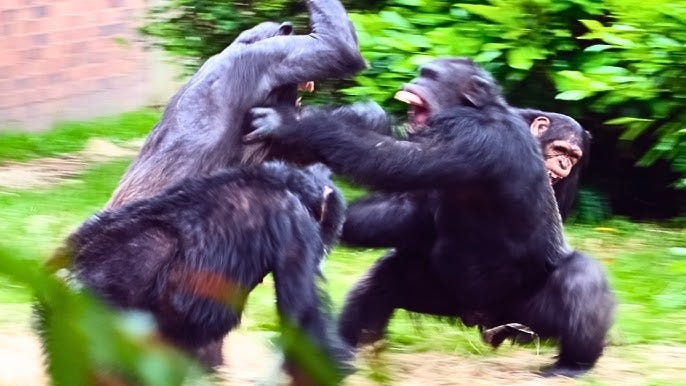Per Tribalismum ad Astra
Capitalism is powered by greed. People want to make money, so they look hard for things they can produce and that others want. Unknowingly, however, they are powering the great information-processing machine that is the market. The output of the machine is the efficient allocation of resources and, eventually, wealth.
Something we intuitively consider bad (greed) is made to work for the benefit of the entire society. Even more so: if everyone suddenly stopped being greedy, the economy would likely fall apart, leaving us in a harsh dog-eat-dog world. Or it would at least stop growing and start to slowly deteriorate.
Greed is a powerful motivator that can be used to drive the engine of societal well-being, but it's not the only motivating force around.
Another such force is tribalism, the desire to defend your own and attack others.
However, we haven't tamed tribalism as much as we have greed. We don't use that force to power the improvement of society.
One could maybe argue that tribalism can be used to wage war effectively and that a country could benefit from winning wars. But war is inherently a negative-sum enterprise, so I don't think that really counts.
Or we could argue that tribalism is used in democracies to limit the power of the government: opposition is constantly attacking the government, which in turn prevents it from going fully bonkers. However, even if this is a force for good, it's completely undirected. Opposition is incentivized to attack the government for anything they do, good or bad. There's no self-steering mechanism, such as the one that steers greed toward productive endeavors in the market economy. The more attacks, the better, however dumb, and the whole thing eventually devolves into a political reality show devoid of any real content. This, in turn, undermines public trust in the political system.
Now consider the following, from an article about the making of Twitter's "Community Notes," published in the excellent Asterisk magazine:
I'll also just add that the bridging algorithm almost works better in a polarized setting. If there's some topic that everyone agrees on, the quality bar of the note is still going to be pretty high, but people will agree that it's helpful even if it's not quite as well written or the source isn't quite as good. The more polarizing the topic is, the higher the quality of the notes can end up being.
In other words, the Community Notes algorithm is powered by tribalism — you want to prove that the rival tribe is posting misleading stuff! — but also, given that the other tribe has to agree with your note for it to show to users at all, you have to fight the tribalism of the other side by making the note as concrete, as clear, and non-controversial as possible.
Less tribalism, less quality. Similar to how less greed in the economy would lead to less growth.
And it's a quality of a specific nature. Here's Asterisk again:
It definitely matches my subjective impression. When I went in and looked at some of the notes that were flagged as very polarized, they tend to be less specific — like, say: “the 2020 election was decided fairly.” And then the helpful fact checks are more like: “this specific statistic about Covid is incorrect,” or “this specific event didn't happen,” or “the photo was taken from a different thing that happened three years earlier.”
And people seem to view such concrete, limited notes as much more trustworthy than the generic, fuzzy (and polarized) ones.
All in all, it feels like the Community Notes team is onto something. Very much like greed powers markets to produce wealth, tribalism powers the "bridging" algorithm to produce societal trust.
That's a worthy goal and a problem for which we don't yet have good solutions.
How do we create trust in society? We don't really know.
So, the same way economists analyze markets to find out how to remove friction from them and make them more efficient, we could analyze the bridging algorithm and ask questions about how to optimize it, how to make it even more efficient at producing social trust.




